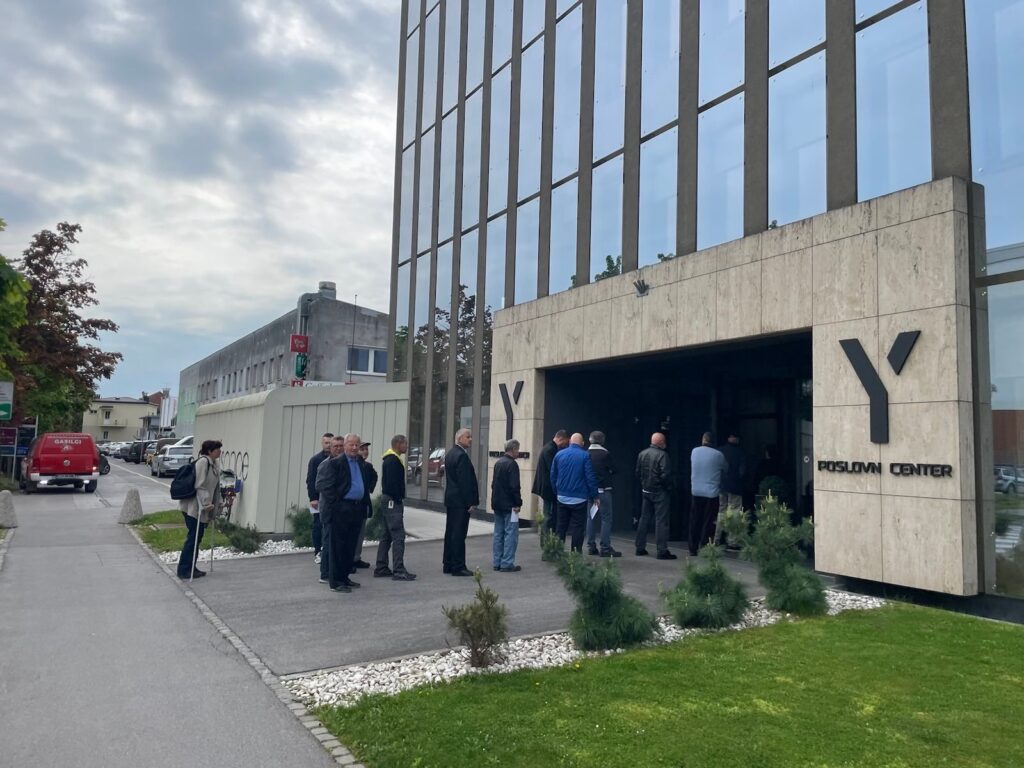If anyone needed further proof of the value system of the current government, they got it just a few days ago in Maribor, where the distribution of commemorative medals marking the 30th anniversary of the country’s independence started very belatedly. The government, with its spiritual centre based in Čebine and Dražgoše, never misses an opportunity to deepen the myth of the National Liberation Movement (Nacionalni osvobodilni boj – NOB). On the other hand, commemorative medals are awarded to those who are deserving of Slovenia’s independence ‘at the counter,’ in front of which a trivial queue is lined up – as if those assembled were waiting in line outside a bakery or a butcher’s shop.
This is exactly what happened recently – first in Maribor and then in Ljubljana. In Maribor, those who were awarded the commemorative medals were queuing at the Defence Administration in Maribor, and the same thing happened in Ljubljana a few days ago, in the immediate vicinity of the Ministry of Defence. “This is the first ever recognition for our contribution to independence, but it looks like we are waiting in line to be shot,” commented Joško Škrjanec, who helped erect barricades in 1991 as an employee of Slovenian Railways, as the newspaper Večer reported. The unfortunate awarding of the commemorations has also been met with a strong reaction from the opposition.
Opposition leader Janez Janša tweeted that this was an insult to the independence generation and compared their queue situation to that of waiting in queues in the former Yugoslavia. “The veterans of the war for Slovenia and all active participants in the independence process deserve to be presented with commemorative medals in a dignified manner. There have been dozens of pompous events in recent days. There is money and will for everything, but apparently not for a modest tribute to the courage of tens of thousands of people in the independence processes and the war for Slovenia. This is an insult to the dignity of the generation that won us an independent state,” he tweeted.
He concluded by noting that the abolition of the Museum of Slovenian Independence was clearly not just a one-off slip by the ruling authorities. The government decided to abolish it as soon as it took power, using the excuse that it was not abolishing it, but merely merging it with other museum collections (specifically, with the Museum of Contemporary History). Apparently, in line with its philosophy, as Dr Jože Dežman has explained several times in recent months, that Slovenian independence was only the final step in a process that began during the Second World War. Dežman, as well as other eminent historians, have also explained the fallacy of this philosophy. The Slovenian independence was a unique and unrepeatable event in Slovenian history, which should not be relativised with the National Liberation Movement. The fact that the authorities had gone too far was apparently also something that the last leader of the communists in Slovenia, Milan Kučan, recently realised, as he proposed that the monument to the revolution be removed from Republic Square and replaced by a monument to independence. His move was described by many as insincere and politically motivated. Kučan is known for his famous statement that an independent Slovenia is not his preferred option, as well as for his statement that “tonight, dreams are allowed. Tomorrow is a new day.”
A negative attitude towards independence
The queues in which those who have contributed to an independent state are waiting for the recognition that is due to them are evidence of the pejorative attitude that the transitional left fosters towards Slovenian independence. It is articulated most clearly by the Left party (Levica). For example, one of the party’s most prominent politicians, MP Miha Kordiš, has described independence as a “scam” and a “capitalist counter-revolution.” The opinion leaders of the transitional left are similarly clear in their public statements. For example, a few days ago, the well-known radio presenter Sašo Hribar claimed that there was no war of independence.
Is it any wonder that those who took part in the War of Independence are just some good-for-nothings in the eyes of the current government?
Gal Kovač


